 |
| The draft Law on Archives (amended) has many provisions to help people access information more quickly and conveniently. Illustrative photo: Ethnic minorities in the Central Highlands receive policies and guidelines via internet connection. (Source: tapchicongsan.vn) |
The mission of archives is to preserve and promote past information - the memory of the nation, while the people are the ones who make history. Therefore, archives - historical information in the memory of the whole nation, first of all, serve all legitimate needs of the people.
With this consistent spirit, over the years, the authorities have made efforts to build a modern Vietnamese archives system, meeting the requirements of state management, modernizing the administration, and serving the people.
Modern human-centered storage
On that basis, the draft Law on Archives (amended) was developed to institutionalize the Party's policy that the legal system must promote innovation, digital transformation and develop products and services in the field of archives to serve the masses and effectively contribute to the cause of national construction and defense and international integration.
The Draft Law on Archives (amended) is built on the principle of inheriting, promoting and perfecting the provisions of the 2011 Law on Archives that are still suitable for practice; at the same time, amending and supplementing unclear, inadequate and inconsistent provisions on the principles of constitutionality, legality and uniformity in the system of legal documents.
In this spirit, the Draft Law has proposed 6 basic archival principles, in which ensuring the leadership of the Communist Party of Vietnam, the centralized and unified management of the State is an important factor and the participation of the community, society and the public is a prerequisite. At the same time, it is necessary to ensure the goal of effectively promoting the value of archival documents for the national interests, the interests of the Vietnamese people, the rights and legitimate interests of agencies, organizations and individuals; ensuring the right to access information of agencies, organizations and individuals according to the provisions of the Constitution and laws; ensuring publicity, transparency, and proper authority according to the provisions of Vietnamese law, in accordance with international archival standards and practices...
Based on the policies that have been set out, all 8 chapters and 65 articles of the draft Law are on the right track, demonstrating specific regulations aimed at the goal of building a service archive - both ensuring maximum convenience for the people and ensuring effective State management.
The task of archives is not simply to preserve and protect the memory of the nation, but more importantly, to facilitate and narrow the gap between the past and the present, allowing generations of people from different historical periods to connect with each other and with their roots. In addition to recognizing the special value of archives in the cause of national construction and development, a new chapter (compared to the 2011 Archives Law) “Archival documents of special value and promoting the value of archival documents” has been proposed by the Law drafting agency and received high consensus from National Assembly deputies.
In this new content, the requirements on the form of promoting the value of archival documents, especially the publication of archival documents, the publicization of the list of records and archival documents have been specifically regulated. The regulation encouraging educational institutions in the national education system to integrate the promotion of the value of archival documents in educational and training activities is one of the new points, expanding the target objects of archival.
In addition to serving people's information needs, Chapter V "Private Archives" of the draft Law on Archives (amended) also aims to serve other needs of people in preserving and promoting the value of documents owned by individuals, ensuring respect for the rights and interests of individuals/communities that own documents.
It can be said that, with the addition of many new regulations mentioned above, the draft Law on Archives (amended) has demonstrated a strong spirit of innovation in ensuring the implementation of human rights and basic rights and obligations of citizens.
 |
| The draft Law on Archives (amended) was developed to institutionalize the Party's policy that the legal system must promote innovation, digital transformation and develop products and services in the field of archives to serve the masses. (Source: terasoft) |
Expanding the scope and increasing the ability to exercise the right to access information
The consistent policy of the Party and State of Vietnam is to encourage and create all favorable conditions for people to be informed and access information to serve the goals of economic, cultural and social development, support administrative reform, improve the quality of life and exercise the basic freedoms of the people.
By introducing a new understanding that "a document is information attached to a carrier whose content and form of expression do not change when the carrier is converted", the draft Law on Archives (amended) emphasizes the content of "information" in archival documents. From here, the regulations on the management of archival documents and archival database, archival operations, and promoting the value of archival documents all have an important purpose of ensuring that information is preserved and used for a long time.
To fully ensure citizens' right to access information from archival documents, one of the prohibited acts stipulated in the draft Law is obstructing citizens' right to legally use archival documents.
At the same time, the draft Law also specifically stipulates access to archival documents: citizens' access to information in archival documents at current archives is implemented in accordance with the provisions of law on access to information; agencies, organizations and individuals are allowed to access information in archival documents at historical archives, and are allowed to access information with conditions in some cases.
In parallel, the draft Law on Archives (amended) also stipulates the rights and obligations of agencies, organizations and individuals in accessing and using archival information, including: accessing archival information accurately, completely, promptly and in accordance with the provisions of law; using archival information to serve work, scientific and historical research and other legitimate needs; making complaints and denunciations in accordance with the provisions of law on complaints and denunciations.
The new and progressive points of the draft Law on Archives (amended) are reflected in the expansion of the scope of accessible information. In particular, it stipulates the responsibilities of agencies, organizations and historical archives in declassifying documents; filling the information gap in some important areas of social management; adding many regulations on new types of documents - digital archives,...
In addition, the draft Law on Archives (amended) also has many provisions to help people access information more quickly and conveniently by reducing the deadline for submitting documents to historical archives; regulating the responsibility to publicize the list of records and archives under management authority on electronic information portals and websites; digitizing archives, digital archives, building and standardizing archive databases; backup storage, etc.
Notably, the draft Law on Archives (amended) has addressed the relationship between the preservation of information - archival documents and the use and promotion of the value of documents in social life. Promoting participation is understood in two directions: archival documents participating in and serving community life and the whole social community participating in archival work.
With the consistent spirit of serving the people, during the process of drafting the Law, the drafting agency reviewed the consistency of the legal system, especially on issues such as digital transformation, digital storage, digital government, digital economy, digital society, comparing with the Law on Information Technology, Law on Cyber Security, Law on Access to Information, Law on Protection of State Secrets, etc. At the same time, the draft was also carefully reviewed and compared with international treaties and agreements to which Vietnam is a member, ensuring consistency and no contradictions.
It can be affirmed that the draft Law on Archives (amended) has fully demonstrated the goals, viewpoints, principles and closely followed the major policies approved by the National Assembly, ensuring citizens' right to access information as prescribed by the Constitution, while at the same time, implementing the orientation of promoting the socialization of archival activities and building an archival society.
It is expected that after being approved by the 15th National Assembly, 7th session and coming into effect, the implementation of specific provisions in the Law on Archives (amended) on the contents ensuring people's right to access information will contribute to bringing many benefits to the country's socio-economic development, while strengthening people's trust in the leadership and administration of the Party and State.
At the 6th session (October 2023), the National Assembly discussed and commented on the draft Law on Archives (amended). In carrying out the tasks assigned by the National Assembly, the National Assembly Standing Committee, and the Government, in the past time, the Ministry of Home Affairs has closely coordinated with the National Assembly's Law Committee to fully absorb the comments of National Assembly deputies, relevant agencies and organizations and revise and complete the draft Law on Archives (amended). The draft Law after being received and revised consists of 8 chapters with 65 articles. The content of the draft Law closely follows the major policies approved by the National Assembly in the proposal to develop the Law, consistent with the goals and viewpoints set out when developing the draft Law, promptly institutionalizing the Party's policy on perfecting the legal system to promote innovation, digital transformation and development of new products and services; inheriting the provisions of the 2011 Law on Archives that are still suitable, supplementing new provisions, contributing to better ensuring citizens' right to access information according to the provisions of the Constitution, at the same time, implementing the orientation of promoting the socialization of archival activities, building an archival society. It is expected that at the 7th Session, 15th Term, the Draft Law on Archives (amended) will be considered and approved by the National Assembly. |
Source: https://baoquocte.vn/bao-dam-quyen-tiep-can-thong-tin-cua-nguoi-dan-thong-qua-luat-luu-tru-sua-doi-272080.html



![[Photo] Prime Minister Pham Minh Chinh chairs conference on anti-smuggling, trade fraud, and counterfeit goods](https://vphoto.vietnam.vn/thumb/1200x675/vietnam/resource/IMAGE/2025/5/14/6cd67667e99e4248b7d4f587fd21e37c)













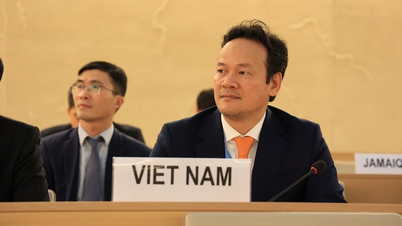





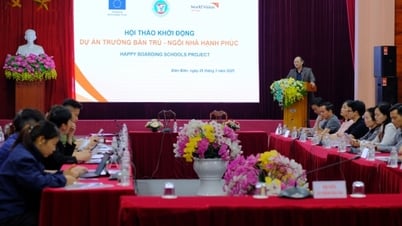









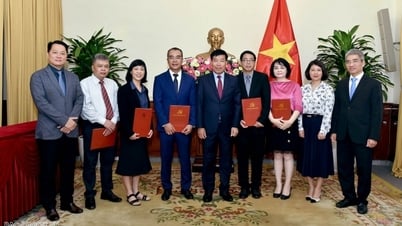
































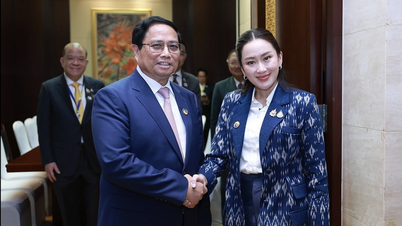
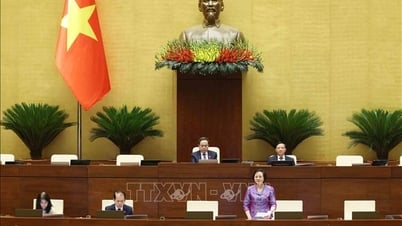


































Comment (0)